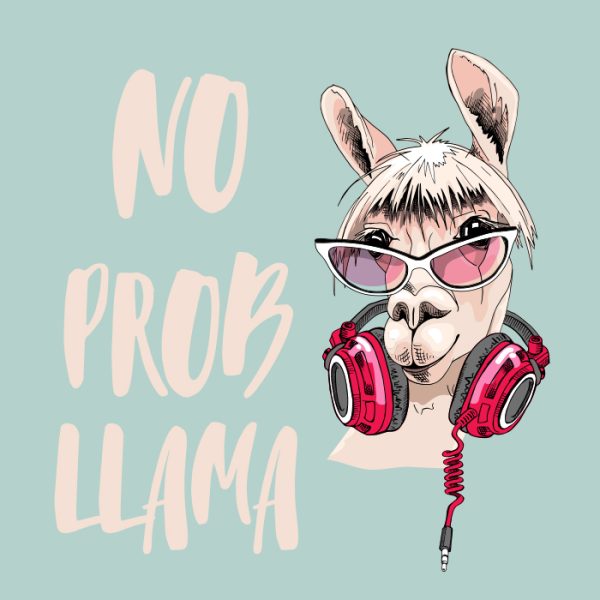In the evolving landscape of the publishing industry, collaborative marketing emerges as a pivotal book marketing strategy for authors seeking to amplify their reach and impact. This approach entails authors joining forces to promote their work, leveraging each other’s audiences and resources for mutual benefit. In an era where the market is saturated with a myriad of titles and competition is fierce, collaborative efforts can cut through the noise, offering a unique avenue for visibility.
The essence of collaborative marketing lies in the synergy created by authors, transforming traditional solitary promotional activities into powerful, joint ventures. Whether through co-hosting events, engaging in social media campaigns, or bundling books, the combined efforts can lead to increased exposure, enhanced credibility, and access to broader, more diverse readerships. Embracing collaboration not only enriches the marketing process but also fosters a sense of community and support among authors, proving to be an indispensable asset in the dynamic world of book marketing.
The Power of Collaborative Marketing for Authors
Collaborative marketing for authors refers to the strategic alliance between writers to jointly promote their work, leveraging the collective strength of their networks and resources. This method extends beyond mere promotion, embedding authors within a supportive ecosystem that thrives on shared goals and mutual success. The significance of such collaboration in promoting the authorial realm cannot be overstated, especially in an age where the digital proliferation of content demands innovative approaches to capture the attention of potential readers.
Benefits
The benefits of this collaborative ethos are manifold. Primarily, it facilitates increased exposure. When authors unite, they pool their audiences, thereby presenting their work to a wider, yet still relevant, demographic. This cross-pollination of readership is particularly beneficial for authors who might share similar genres or thematic elements in their work, as it introduces their books to an audience that is already inclined towards their style or subject matter.
Moreover, collaborative marketing opens the door to new readers who might have remained unreachable through individual efforts. Through joint ventures such as collaborative partners such as anthology contributions, shared book tours, or collective social media campaigns, authors can tap into each other’s unique markets. This not only broadens their reach but also enhances the discoverability of their books in an increasingly crowded marketplace.
Additionally, such collaborative efforts often lead to a deeper engagement with existing fans. When readers see their favorite authors endorsing or teaming up with other writers, it can spark curiosity and lead to increased loyalty and trust, encouraging them to explore new titles they might otherwise have overlooked.
In essence, the power of collaborative marketing lies in its ability to create a synergistic effect, where the combined efforts of authors result in a greater impact than any could achieve alone. This marketing strategy not only elevates the individual authors’ profiles but also enriches the literary community, fostering a culture of support, innovation, and shared success.
Innovative Marketing Strategies Through Collaboration
In the realm of collaborative marketing, authors have harnessed a variety of innovative strategies to elevate their promotional efforts and captivate broader audiences. These creative approaches not only serve to enhance the visibility of their work but also to forge deeper connections with readers through unique and engaging content.
Joint Events
One such strategy is the organization of joint events. Authors frequently come together to host combined book readings, signings, or literary discussions, often leveraging each other’s fan bases. These events can take place in physical venues such as bookstores and libraries or virtually, through webinars and live streams. The shared platform not only doubles the promotional reach but also offers a dynamic and interactive experience for attendees, fostering a sense of community among readers and writers alike.
Social Media
Social media takeovers present another dynamic avenue for collaborative marketing. Authors can guest-manage each other’s social media accounts for a day or a specific period, introducing their work to an entirely new audience while providing fresh and engaging content. This strategy not only diversifies the content on the authors’ platforms but also creates a buzz and a sense of anticipation among followers, eager to see their favorite authors in a new light.
Co-writing projects
Co-writing projects represent a deeper level of collaboration, where authors merge their creative talents to produce joint works such as novels, anthologies, or series. This melding of distinct voices and styles not only results in unique literary offerings but also combines the authors’ marketing efforts and fan bases, significantly amplifying the reach and impact of their promotional activities.
These innovative collaborative marketing strategies are not just about reaching a broader audience; they’re about creating a richer, more engaging experience for readers. By joining forces, authors can break through the traditional marketing noise, offering their audiences not just books, but memorable literary events, insightful social media interactions, and collaborative masterpieces that stand out in the crowded marketplace.
Leveraging Social Media and Online Platforms
Social media platforms and online forums have become indispensable tools in the arsenal of authors looking to market their work collaboratively. Platforms such as Facebook groups, Twitter, and Instagram offer vast, interconnected communities where authors can engage with potential readers and amplify their reach through shared efforts.
Facebook groups, in particular, serve as a hub for authors to connect not only with each other but also with dedicated reader communities. These groups facilitate discussions, book recommendations, and event announcements, making them an ideal space for collaborative marketing activities such as joint live Q&A sessions, author interviews, book club discussions, and exclusive content reveals. Authors can cross-promote each other’s work within these groups, tapping into established communities of engaged readers.
Twitter’s fast-paced, hashtag-driven environment is perfect for short, impactful collaborative promotions. Authors can team up for Twitter chats, coordinated book launch countdowns, or themed tweet threads that link their works under common genres or topics. The retweet function allows for effortless sharing of each other’s content, broadening the potential audience reach exponentially with every interaction.
Instagram, with its visually driven format, offers a unique avenue for authors to collaborate on aesthetic content such as themed book posts, joint live readings, or behind-the-scenes glimpses into the writing process. Authors can participate in tag challenges, where they tag each other in posts related to their books or writing life, encouraging their followers to explore new authors and titles.
A notable example of a successful collaborative campaign is the #IndieApril movement, where self-published authors come together on various social media platforms to promote independent publishing. Authors share each other’s work, participate in virtual book fairs, and engage in hashtag-driven discussions, significantly increasing visibility and sales during the month.
By leveraging the unique features and vast audiences of these social media platforms, authors can craft collaborative marketing campaigns that are not only innovative but also deeply resonant with their target audience and readerships, fostering a sense of community and shared discovery.
Building a Community: Networking with Other Authors
Building a robust network within the writing community is pivotal for authors, particularly for those who share similar genres or thematic interests. Such connections can lead to meaningful collaborations that enhance each author’s reach and impact. Networking with fellow authors facilitates the exchange of ideas, resources, and support, creating a fertile ground for collaborative opportunities and mutual growth.
To find potential collaborators, authors can start by engaging with writing groups and forums online. Platforms like Goodreads, Reddit’s writing communities, and genre-specific Facebook groups offer spaces where authors can discuss their work, share experiences, and writing tips and connect over common interests. Participation in these communities can help authors identify like-minded individuals who might be open to collaboration.
Attending literary events, conferences, and workshops is another effective way to meet fellow authors and industry professionals. These events often include networking sessions, panel discussions, and collaborative workshops, providing a natural setting for authors to connect and explore potential partnerships.
Social media also plays a crucial role in building a network of fellow authors. Engaging with other writers on platforms like Twitter, Instagram, and LinkedIn through comments, shares, and direct messages can lead to fruitful connections. Authors can join forces in social media challenges, participate in hashtag trends related to writing, and support other authors’ promotional efforts to foster a sense of community.
To ensure these connections lead to genuine support networks, authors need to approach networking with a mindset of mutual benefit and collaboration. Offering to help others, whether through providing feedback, sharing their work, and writing skills, or collaborating on promotional activities, can build goodwill and establish strong, supportive relationships.
By actively engaging with the writing community, authors can build a network of collaborators who not only contribute to their promotional efforts but also offer emotional support and creative inspiration. These connections can enrich the writing journey, making it a more collaborative and fulfilling experience.
Collaborative Events and Projects for Greater Impact
Collaborative projects and events stand as powerful catalysts for increasing book sales and enhancing author visibility. By pooling resources and talents, authors can create compelling offerings that attract a wider audience and generate significant buzz in the literary world.
One popular collaborative project is the creation of box sets, where authors bundle their works into a single, attractively priced package. This not only offers readers great value but also introduces them to a variety of writers within the same genre or theme, broadening their literary horizons. Box sets are particularly effective in digital formats, where readers can effortlessly access a diverse range of content with a single purchase.
Anthology contributions represent another collaborative endeavor, where authors contribute short stories, essays, or chapters around a central theme or genre. Anthologies showcase the unique voices and styles of multiple authors, providing a sampler that can pique readers’ interest in exploring more works by the contributors. These collections often benefit from the combined marketing efforts of all involved authors, leading to increased visibility and sales.
Book Launches
Joint book launches are collaborative events that can create a significant impact. By launching their books together, authors can share the costs and responsibilities of promotional activities, from advertising to venue booking. These events can be more dynamic and draw larger crowds than solo launches, making them an attractive proposition for both authors and readers.
Harnessing Literary Events, Book Signings, and Webinars
Literary events, book signings, and online webinars offer additional platforms for collaborative promotion. Participating in panel discussions, conducting joint readings, or hosting interactive webinars allows authors to engage with their audience, share insights into their writing process, and cross-promote each other’s work. These events not only foster a sense of community among authors but also create memorable experiences for attendees, leading to increased interest and sales.
In essence, collaborative projects and events harness the collective strength of authors to make a greater impact in the literary market, enhancing visibility, broadening reader bases, and ultimately driving sales through innovative and engaging promotions.
Spines: Empowering Authors
Spines, a publishing platform enhanced by AI, is designed to empower authors. Spines stands out as one of the best platforms to publish your book – through a streamlined publishing process, you can publish your book in 30 days. A bonus of signing up with Spines is that they offer authors advanced marketing strategies and collaborative opportunities. Through specialized community events, Spines fosters a network where authors can learn and share effective marketing tactics, enhancing their reach and visibility. Additionally, Spines offers comprehensive online courses focused on book marketing, catering to authors at various stages of their careers. Spines stands as a beacon for authors navigating the complex landscape of book marketing, providing guidance, community, and cutting-edge resources.
Conclusion
Collaborative marketing for authors embodies the adage that there is strength in numbers. By joining forces, authors can amplify their reach, engage with broader audiences, and create innovative promotional strategies that stand out in a crowded marketplace. The key benefits of such collaboration include increased exposure through shared platforms, access to new readers via cross-promotion, and the enrichment of the marketing landscape with creative and diverse campaigns. From joint events to co-writing projects, the opportunities for collaborative marketing are as boundless as the authors’ imaginations.
As the publishing world continues to evolve, the importance of community and mutual support becomes ever more apparent. Authors are encouraged to explore these collaborative avenues, not only to enhance their marketing efforts but also to enrich their writing journey. In the spirit of unity and shared success, embracing collaborative marketing can pave the way for a more vibrant and interconnected literary landscape.







